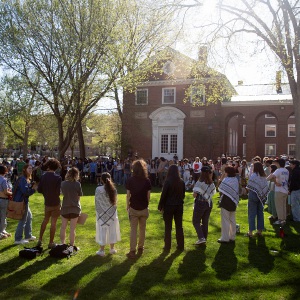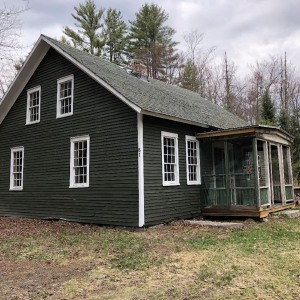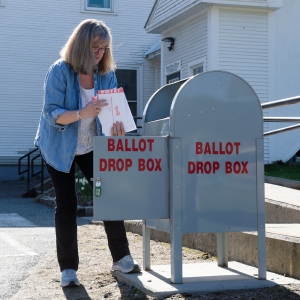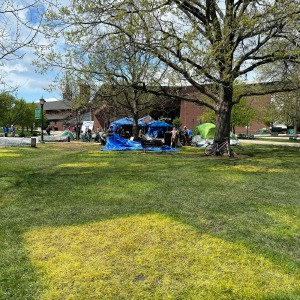Hartford Fire Department considers adding community nurse
| Published: 11-10-2023 9:41 PM |
WHITE RIVER JUNCTION — Hartford is considering hiring a community nurse in hopes of reducing demand for emergency services.
Amid increasing calls for aid in recent years, the town is seeking to better address people’s health issues before they become emergencies, Fire Chief Scott Cooney said, during last week’s Selectboard meeting.
He noted that emergency responses are “probably the most expensive form of health care you can receive.”
It’s not clear how much having a community nurse available to help older residents manage their medication or monitor their blood pressure might help reduce EMS demand, but Cooney said in a Monday phone interview that it stands to reason it would. More than 50% of Hartford’s ambulance calls are for people ages 65 or older, he said.
“One would logically assume (if you) institute a prevention plan, (you) reduce your call for service,” he said.
He estimated that adding a full-time nurse to the department would cost about $150,000 annually, which he told the Selectboard this week would raise the tax rate by one penny.
In a recording of the Selectboard’s Oct. 31 meeting, Cooney introduced the board to Katie Williams, a Quechee resident who is one of Hartland’s community nurses, and Dr. Donald Kollisch, the chairman of the board of the Lebanon-based Community Nurse Connection, formerly the Upper Valley Community Nursing Project, which provides support and resources to community nurses in the Upper Valley and beyond.
In addition to Hartland, community nurses now serve the Upper Valley municipalities of Hanover, Lebanon, Lyme, Norwich, Thetford, Strafford, Tunbridge and West Windsor. Enfield and Grantham are expected to begin offering the service next year.
Article continues after...
Yesterday's Most Read Articles
 Dartmouth administration faces fierce criticism over protest arrests
Dartmouth administration faces fierce criticism over protest arrests
 Hanover house added to New Hampshire Register of Historic Places
Hanover house added to New Hampshire Register of Historic Places
 Sharon voters turn back proposal to renovate school
Sharon voters turn back proposal to renovate school
Williams, a part-time nurse employed by the community organization Aging in Hartland, said she provides case management, in-home support for people if they’re willing, or she meets clients in public “if that’s what feels most safe to them.” She most often works with “frail, vulnerable elders.” She also provides clinics and educational seminars.
The role of a community nurse is distinct from the work of visiting nursing agencies, which are compensated by Medicare for skilled nursing services. Community nurses, whose services are free to clients, often receive referrals from neighbors, family members, doctors or agencies. They can provide services for as long or as frequently as a person needs it.
The “real distinction here is cost/access,” Williams told the Selectboard.
She shared a story of an 84-year-old woman who grew up in Hartland and raised her children there. She had regularly been coming to a blood pressure clinic Hartland’s nurses offer during the food pantry’s open hours, but then stopped coming as often and had elevated blood pressure when she did. When Williams went to the woman’s home, she found scattered medications and dirty dishes. This wasn’t characteristic.
Williams was able to coordinate with the woman’s primary-care provider and get her children on one virtual call. It turned out the woman had progressive dementia. She’s since moved in with one of her children and has stabilized, Williams said.
“That’s an example of a good outcome,” she said. “… Helping families to bring safety to our patients.”
Kollisch, a community medicine doctor since 1980, said “wonderful things can happen” when community nurses care for people.
The nurses are usually compensated by a municipality or by a nonprofit, sometimes by churches, he said.
While the nurses don’t respond to emergencies, they do offer preventive services such as fall assessments, Kollisch said.
Community Nurse Connection provides small grants for nurses to use for things like shoes, stethoscopes or nursing education programs. It also provides a $5,000 grant for new programs. In addition, it serves as a place for the community nurses to share information and to provide assistance for fundraising for sponsoring organizations.
The community nurses help people manage their physical health and also provide emotional support, Kollisch said.
“Particularly during COVID, (the) social isolation that our frail elders suffered was really dramatic,” he said. “Phone calls 10 minutes a week can make a huge difference.”
Selectboard member Lannie Collins said he had no difficulty seeing the value that a community nurse might provide to Hartford families. He has been a caregiver for his father, who is 89, for the past three years. He also cared for his mother before that.
He described caregiving as the “hardest job I’ve ever had.” His father is a disabled veteran and gets support through the Veterans Administration.
“I honestly don’t know how families do that who do not have that help,” he said.
Still, Collins asked what Williams might expect Hartford would see in terms of a drop in call volume should it hire a full-time nurse.
Williams said from her caseload of 45 there are some cases “where it’s really black-and-white” that the service has reduced ambulance calls but others “where that’s not so easy to measure.”
Collins also asked whether the community nurses could provide vaccines such as COVID or flu.
Williams said no, the nurses cannot provide direct care, but they can help organize community clinics or help people sign up for the shots.
Selectboard member Kim Souza asked whether most of the nurses are full-time and whether the towns provide work spaces.
The only towns with full-time nurses are Lebanon and Lyme, Kollisch said. In other towns, nurses work from 10 to 20 hours a week. Some have work spaces: Tunbridge offers space in the town office, and Lebanon has space in the downtown fire station. Williams said she and Hartland’s other part-time nurse occupy space in a private residence.
Kollisch warned the board of the nationwide nursing shortage.
“Setting up a program will put you in the recruiting business,” he said. Community nurses tend to be either early or late in their careers, he noted.
Cooney, on Monday, said he thought the presentation had been well-received by the board. For his part, Cooney said, “It is something I would support.”
Nora Doyle-Burr can be reached at ndoyleburr@vnews.com or 603-727-3213.

 Students take down pro-Palestinian encampment at UVM
Students take down pro-Palestinian encampment at UVM
